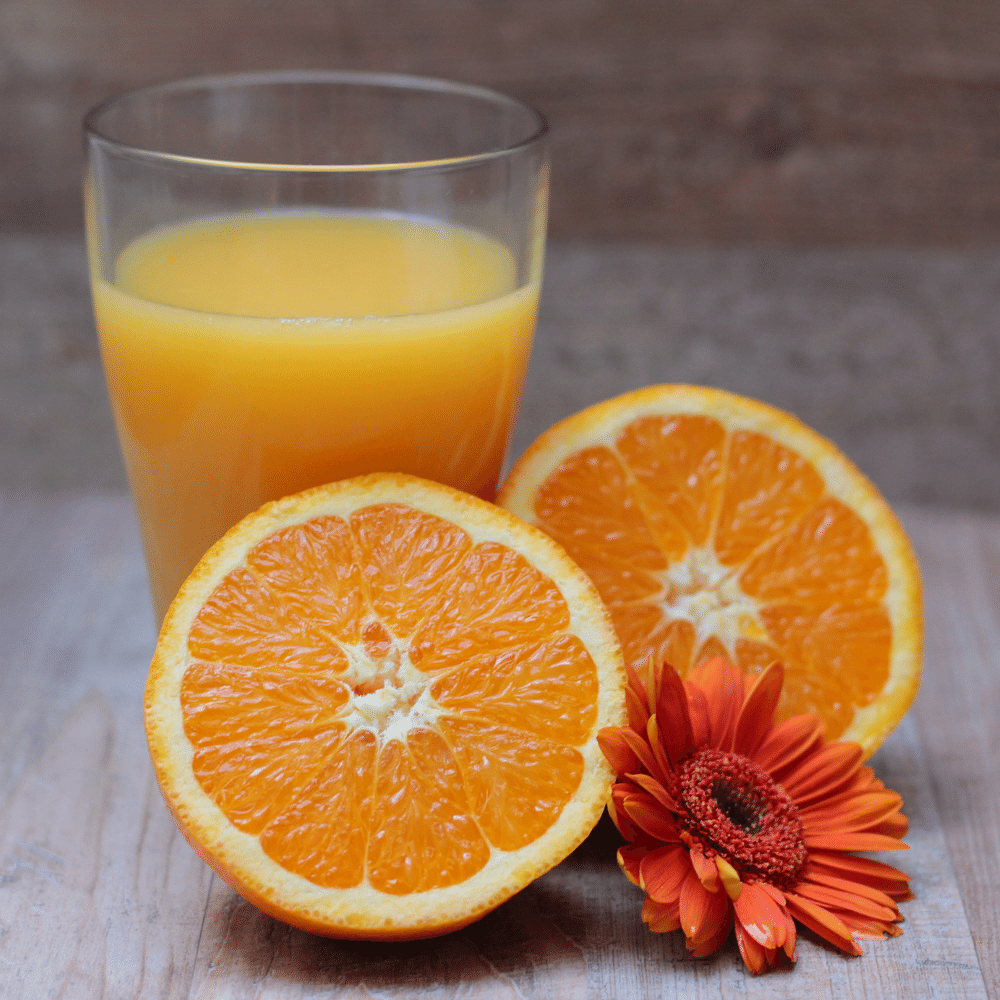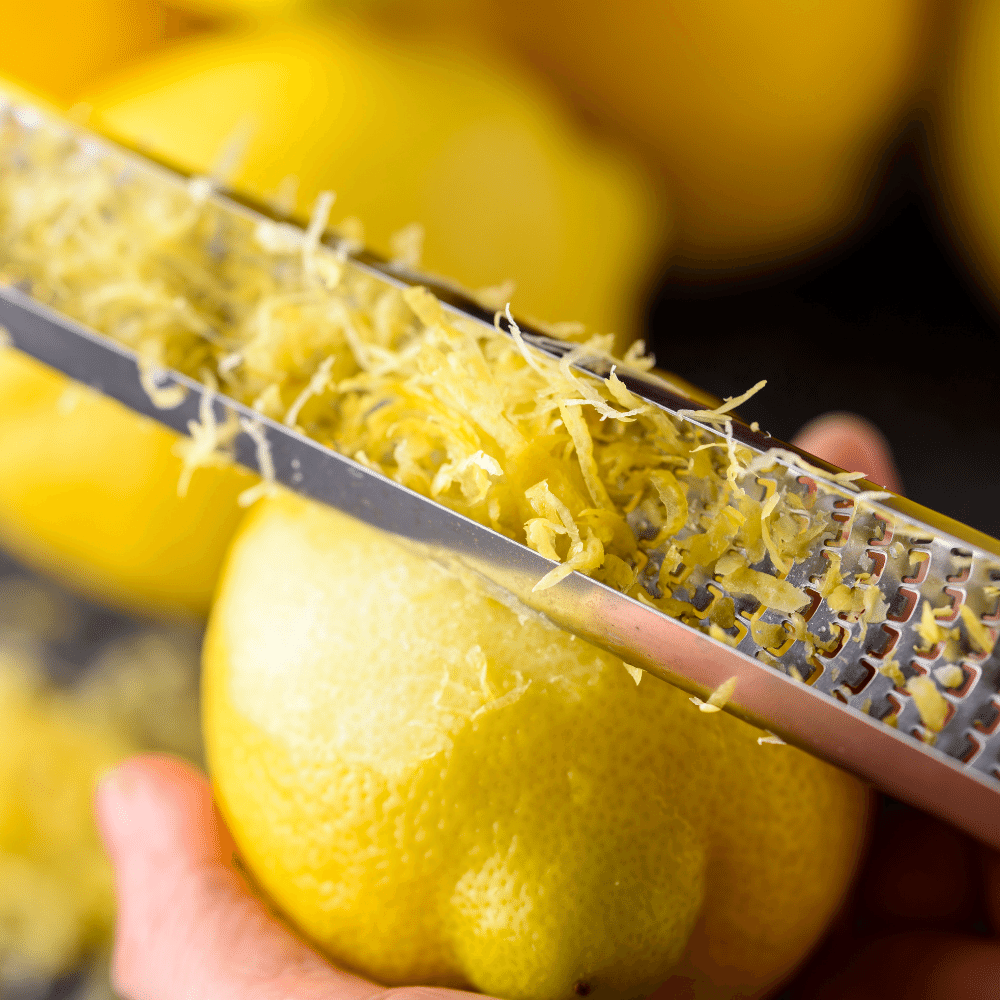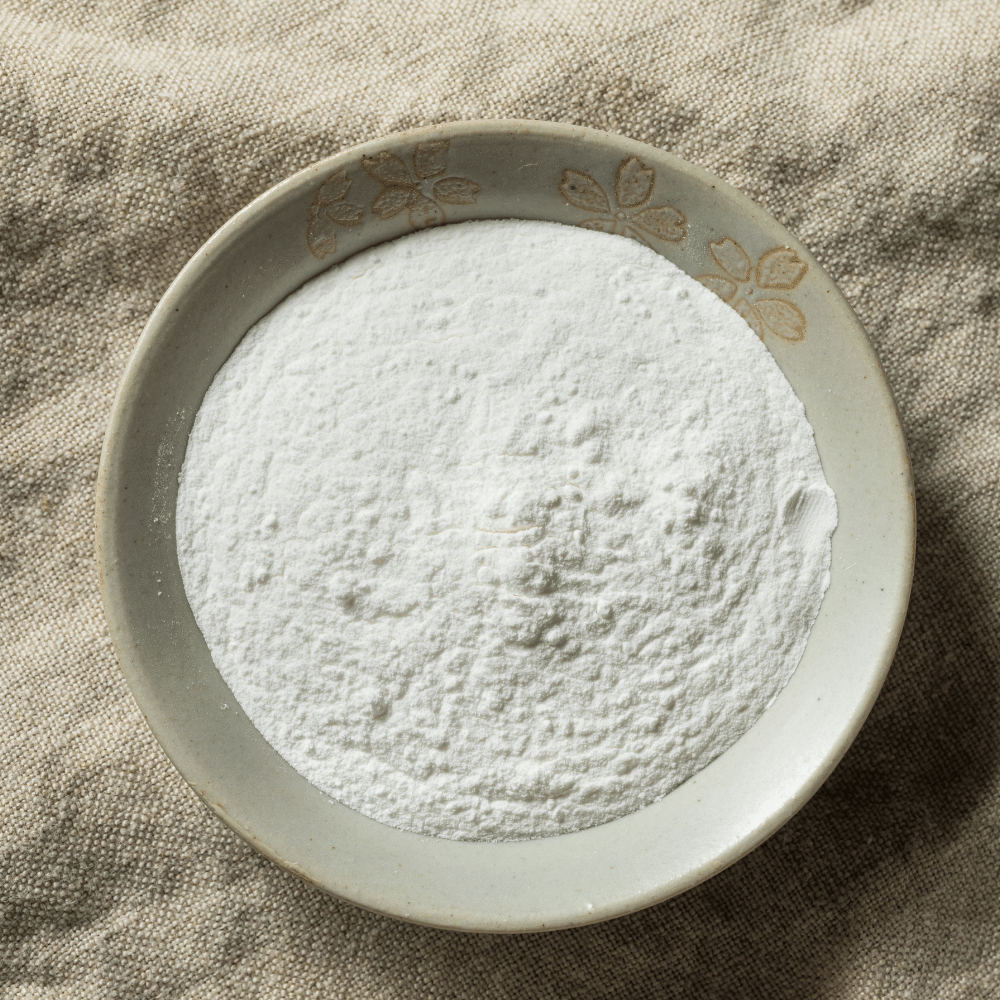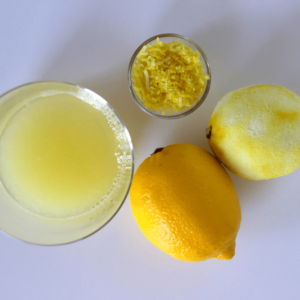Do you have a recipe that calls for lemon juice but don’t have any on hand?
Don’t worry!
There are plenty of substitutes that can be used in place of fresh or bottled lemon juice.
Whether you need an ingredient to add some zing to a savory dish, or want something tart and acidic for baking, there is sure to be an alternative that fits the bill.
From vinegar and lime juice to orange juice and even white wine, here are 8 of the best substitutes for lemon juice.
What Is Lemon Juice?

Lemon juice is a type of fruit juice that is obtained from the citrus lemon, which belongs to the Rutaceae family.
It has a distinctive sour taste and bright yellow color, thanks to its high content of citric acid and vitamin C.
Lemons are one of the most popular citrus fruits in the world and have been used for centuries as ingredients in many culinary dishes.
The juice can be extracted by squeezing or pressing fresh lemons and then straining out any solid pieces.
It can also be purchased pre-squeezed at grocery stores or made with reconstituted powdered lemon juice mixes.
Lemon juice has a slightly acidic pH level but still remains relatively neutral when compared to other types of acids such as vinegar or acetic acid.
This makes it an ideal ingredient for marinades and dressings where balance between sweet and sour flavors need to be achieved.
It can also act as an effective natural cleaner due to its antibacterial properties, making it great for household cleaning tasks too!
The 8 Best Substitutes For Lemon Juice
Lemon juice is a common ingredient in many recipes, but sometimes it’s hard to find.
If you can’t get your hands on some lemons, don’t worry – there are plenty of substitutes that can be used instead.
Here we look at the eight best alternatives for lemon juice:
1 – Lime Juice

Lime juice is one of the most popular ingredients used in cooking because of its tangy and slightly sweet flavor.
When compared to lemon juice, which has a more tart taste, lime juice adds just the right level of citrusy freshness to dishes.
It’s especially common in Latin American cuisine, like Mexican and Caribbean fare – think margaritas (of course!) as well as ceviche and salsa.
It can be used to balance out spicy flavors or enhance sweeter notes.
Lime juice can also bring out nuances in soups and stews for incredible depth of flavor.
When it comes time to decide between using lime or lemon juice in your recipes, it really depends on the dish you’re making!
Lemon goes best with savory dishes like chicken, fish, even simple grilled veggies; while lime works better with desserts, seafood-based dishes such as ceviche marinades (think tequila), cocktails, sauces/dressings that need an extra kick of acidity – perfect for dressing up salads!
So whether you’re needing something zesty or something sweet– there’s a spot for both limes and lemons on your menu!
2 – Orange Juice

Orange juice is a very popular ingredient in cooking, especially when it comes to adding flavor and sweetness.
Orange juice can be used in savory recipes such as glazed chicken or pork chops for a lightly sweet citrus note that’s balanced by the acidity of the orange juice.
Or you could use it to enhance slow-cooked stew dishes with an underlying sweetness and acidic bite.
When would it make sense to use orange juice instead of lemon juice?
Well, it depends on what flavors you’re aiming for.
If you want a more full-bodied flavor, then using orange juice instead of lemon may be beneficial.
Lemon has sharper flavors due to its higher acid content while oranges have many notes that range from strong tartness all the way to mild sweetness – something which suits different types of dishes better than others!
3 – Vinegar

Vinegar is one of the most versatile ingredients in cooking.
It adds a unique, tart flavor to dishes that you just can’t get from lemon juice.
One of the biggest advantages that vinegar has over lemon juice is its acidity—it typically has an acidity level between 5% and 8%, making it much more potent than typical citrus fruits like lemons (which tend to be around 2%).
This means it packs more flavor into your dish as well as helps preserves items for longer periods of time.
Thanks to its high concentration of acids and salts, vinegar works especially well for processes such as pickling or brining proteins (such as fish) before cooking; the higher levels of acid help draw out moisture from food quickly, resulting in a finished dish with great texture.
In addition, vinegar can also provide an alternative pairing in place of salty dishes or sweet desserts.
The sourness makes for pleasant contrast when balanced properly against sweeter notes.
When looking for alternate ingredients, try substituting vinegar where you would normally use lemon juice!
With so many different varieties—from white wine to apple cider—vinegar can lend exciting new flavors without having too overwhelming of a presence in the dish.
4 – Lemon Zest

Lemon zest is a popular ingredient in cooking because of its versatility and unique flavor.
It can be used to flavor both sweet and savory recipes, making it widely applicable across different cuisines.
Unlike lemon juice, which can be quite sour and acidic, lemon zest adds a subtle brightness to dishes with only the perfect balance of sweetness.
It’s also much easier to use than freshly squeezed lemon juice as it has an intensified citrusy aroma that’s simply not achievable with other ingredients.
When you decide between using lemon zest or fresh-squeezed lemon juice for your recipe, there are a few considerations: Lemon zest works best when the distinct taste of citrus needs to shine through without being too intense; whereas, when acidity is called for in a recipe like marinating meats or fish – then fresh-squeezed juice might be better suited as lemons tend to have higher acidity levels than their peels do.
5 – Cream of Tartar

Cream of Tartar, also known as potassium bitartrate, is a super versatile ingredient that has been used for hundreds of years in baking and cooking.
It’s an acid salt that provides balance to sweet baked goods and makes them fluffier.
Typically found in the spice department, cream of tartar resists humidity better than some other acids.
This means your recipes will be more consistent from season to season when you use it instead of lemon juice or vinegar.
Its pH level can range from 2-3 which gives it a stronger leavening power for natural ingredients like whipped egg whites.
Plus it adds delicious flavor!
You may find hints of fruit and floral notes when you use cream of tartar on roasted vegetables or meat marinades.
And if you don’t have time to zest limes and lemons, try adding a little pinch instead; there’s no need to reach for the store-bought citric acid substitutes!
Cream of tartar will give more depth with less added sugar which won’t impact the flavor profile as much as another acid would do.
6 – White Wine

White wine is a very popular ingredient in cooking because of its flavor profile.
It brings acidity with a slightly sweet and aromatic taste that works well in savory dishes, such as risotto or creamy pasta sauces.
White wine adds depth of flavor to these dishes, balancing out the bright flavors from other ingredients like garlic and herbs.
When deciding between white wine vs lemon juice for savory recipes, I would suggest using white wine if you are looking for something bolder and more complex-tasting than the sour bite offered by lemon juice.
White wine is much less acidic but still carries those lovely flavor compounds that will bring deliciousness to any dish!
7 – Apple Cider Vinegar

Apple Cider Vinegar has become exceptionally popular in cooking due to its unique flavor and how it complements other ingredients.
It has a sharp, tangy taste that adds depth to any dish it’s added to.
The flavor of apple cider vinegar makes it much subtler than lemon juice when used for salad dressings or as a marinade for meats like pork or chicken.
And even if you do use an acidic ingredient, the vinegar balances out the flavors much better than something harsher like lemon juice so you don’t end up with a bitter aftertaste.
Plus, while lemon juice might make food seem “zig-zaggy” because of its intense taste, using apple cider vinegar on its own prevents this from happening and still adds much-needed acidity.
This is why cooks often prefer apple cider vinegar over other common acidic ingredients such as tomato sauce or tartar sauces when adding more complexity to their meals without overwhelming the senses with one particular ingredient’s individual taste.
With several different ways to utilize apple cider vinegar in your pantry—from vinaigrettes and pickling vegetables to condiments—it’s no wonder why this kitchen staple has become so popular.
8 – White Balsamic Vinegar

White balsamic vinegar is a rising star in the culinary world due to its mildly sweet, pleasant flavor.
This versatile ingredient can be used both in savory and sweet dishes and boasts a mild acidity compared to traditional red-wine vinegar.
Consequently, it works exceptionally well as an alternative to lemon juice when you’re looking for that tangy hit without over overpowering your dishes. It’s great in salads, sauces, marinades, fish recipes—just about anything you would use lemon juice for!
White balsamic pairs especially nicely with vegetables like portobellos or eggplant; vegetables which already have earthy tones rather than fragrant aromas that could get lost amidst the strong notes of acids from other vinegars.
Because of its subtle sweetness, white balsamic complements floral and fruity flavors wonderfully too – making it the perfect match for intense fruit-based desserts or even tart sorbet.
All these factors combined make white balsamic more than just another condiment – they gently add their own unique flavor while enhancing preexisting elements instead of competing with them on the plate – giving any creative dish incredible depth without experiencing food fatigue.
Conclusion
In conclusion, lemon juice is a commonly used ingredient in many recipes, but it can be hard to find.
Luckily, there are plenty of substitutes that can be used in its place, including lime juice, orange juice, vinegar, lemon zest, cream of tartar, white wine, apple cider vinegar, and white balsamic vinegar.
All of these alternatives can be used to add a zing of flavor to recipes, or for baking and adding tartness.
No matter what you’re cooking or baking, these substitutes can help you get the same results as using lemon juice.

The 8 Best Substitutes For Lemon Juice
Ingredients
- Lime Juice
- Orange Juice
- Vinegar
- Lemon Zest
- Cream of Tartar
- White Wine
- Apple Cider Vinegar
- White Balsamic Vinegar
Instructions
- Pick your favorite substitute from the list above.
- Follow cooking directions for your selected substitute with the proper ratio of ingredients.
Hi, I'm Benjamin. I love cooking, long walks, and my girlfriend! Here you’ll find simple and delicious recipes that you can make in 30 minutes or less.

